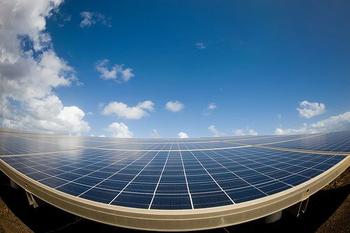Concealed Shower Mixer,Consealed Shower Faucets,Concealed Bath Shower Mixer,In Wall Bath Shower Mixer JIAHAOJIA SANITARY WARE INDUSTRY CO., LTD. , https://www.gagalfaucet.com Despite the shrinking solar energy subsidies, new installations of solar energy equipment in Germany still set a record in 2012. The German Federal Ministry of the Environment issued a statement saying that in December 2012, the power of newly installed solar equipment in Germany reached 360 megawatts. As a result, the total installed power of new solar equipment in Germany rose to approximately 7,630 megawatts in 2012. The previous record was 7,500 megawatts in 2011.
Despite the shrinking solar energy subsidies, new installations of solar energy equipment in Germany still set a record in 2012. The German Federal Ministry of the Environment issued a statement saying that in December 2012, the power of newly installed solar equipment in Germany reached 360 megawatts. As a result, the total installed power of new solar equipment in Germany rose to approximately 7,630 megawatts in 2012. The previous record was 7,500 megawatts in 2011.
The Ministry of Environment stressed that since October, Germany has implemented a solar subsidy reduction policy that was formulated during the summer. This policy has led to a significant reduction in the expansion of the photovoltaic industry beyond its control. The biggest month for new solar equipment in 2012 was in June, reaching 1,790 megawatts.
For German citizens, the solar boom is not good because they need to pay additional subsidies. This fee will be shared among citizens' electricity prices in the form of green energy sharing fees. In addition, the expansion of the grid has also failed to keep pace with the expansion of photovoltaic equipment.
Holger Krawinkel, an energy expert at the German Consumers Association, stressed that in the past three years, Germany’s new installed solar capacity has reached approximately 22,000 megawatts. As a result, the government of yellow and black has become the most successful government in promoting solar energy in Germany's history, and it is also the government that has raised electricity prices to the highest level.
At the beginning of the year, Germany's renewable energy sharing fee rose from 3.59 Euro per kilowatt hour to 5.3 Euro cents. The main reason is the rising cost of solar energy and the increase in manufacturing production cost discounts. Since the beginning of the year, consumers have had to pay 12% more on average.
German Federal Environment Minister Peter Altmaier believes that the renewable energy law amended at the end of June 2012 could block the expansion of solar energy. The German Confederation and the State have reached an agreement that once the total installed capacity exceeds 52,000 megawatts, they can no longer enjoy subsidies. In addition, at a certain inflation rate, subsidies will be automatically reduced on a monthly basis.
Due to the rapid expansion rate, the solar power price since the beginning of the year was only 17.02 Euro cents per kilowatt hour, and the solar farm operators could obtain 11.78 Euro cents per kilowatt-hour of revenue. Solar subsidies may stop at the end of 2015 if the current speed is maintained.
At present, Germany has a total installed capacity of 32,400 megawatts. The power of all solar farms is theoretically equivalent to the power of 23 large nuclear power plants. The solar industry claims that currently photovoltaic power generation in Germany can meet about 5% of the electricity demand.